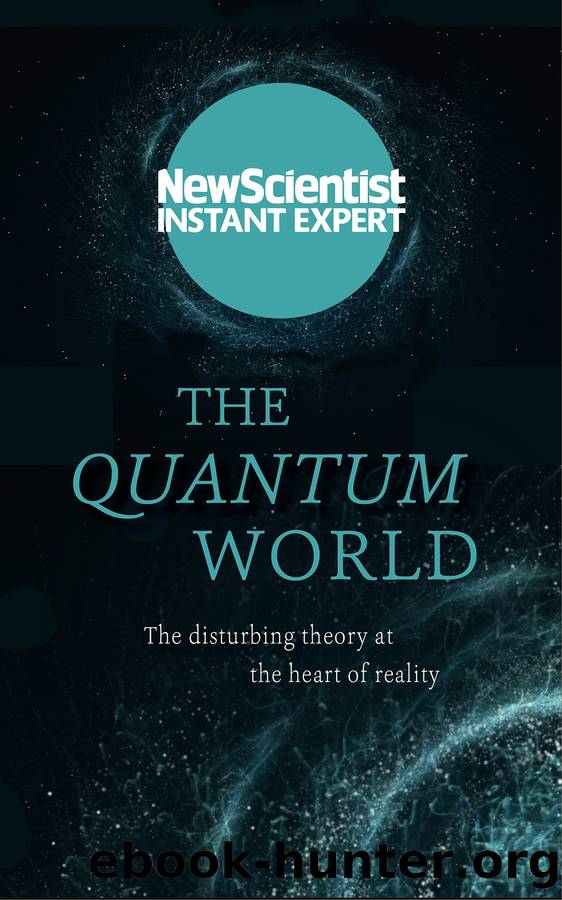The Quantum World by New Scientist

Author:New Scientist
Language: eng
Format: epub
Publisher: Quercus
Published: 2017-03-31T00:00:00+00:00
Noise: the key to quantum technologies?
Quantum devices are proving extremely difficult to build because they must operate under noise-free conditions. Controlling entanglement, however, is a frustrating goal. Collisions with air molecules, stray electromagnetic signals, heat and many other factors create vibrations, or noise, which rapidly degrade this quantum feature. A quantum algorithm that corrects for noise can preserve entanglement long enough to compute accurate results, but so far no general-purpose quantum computer has been built using more than a few qubits. A large-scale computer based on pure entanglement is unlikely to become a reality in the next decade.
What if we could build quantum devices that tolerate noise â or even exploit it? This may be possible, thanks to an obscure property of the quantum world called discord â a hot but controversial topic. Discord was first discovered in the early 2000s by three groups working independently in the UK, the United States and Poland. At its basis is the realization that quantum is not a yes/no option. A system can be fully quantum, and hence criss-crossed with entangled connections. But it can also be only partially quantum, lacking entangled connections but possessing other features of quantum theory. In essence, discord measures this quantumness, encompassing both entanglement and what was once thought of as unwanted noise. It is ubiquitous in quantum systems.
For seven years, discord remained a niche topic and its practical importance was unclear. However, interest in discord increased five years ago when evidence began to accumulate that it can add âquantum powerâ to a system even when entanglement is absent. Previously, it had been assumed that entanglement was a critical requirement.
A key development came in 2008 when researchers at the University of New Mexico took a fresh look at a simplified model of a quantum computer called DQC1. They found that, as more qubits are added, the computer continues to work efficiently even as the number of data entries grows exponentially â something impossible to achieve with digital computers. Interestingly, this large improvement was achieved without a large increase in the amount of entanglement, leading to the conclusion that discord had enabled it. Remarkably, the DQC1 model works using only one qubit protected from noise, while all its remaining qubits are fully noisy. It shows us that a whole lot of noise need not be a nuisance, but rather a resource when put together with just a little bit of clean signal. Other recent research shows that a quantum computer that generates no discord cannot be more powerful than a classical one, in many instances.
Discord appears to play a useful role in quantum sensors, too â a potential way to boost sensor precision while using less energy. These could be used to probe fragile biological specimens that are damaged by light exposure, for example. Research shows that in some types of noisy quantum sensors, where entanglement is unprotected from noise, a boost in quantum power is possible using techniques that exploit discord.
Another exciting finding is that there is a direct correlation between discord and the precision of quantum sensors.
Download
This site does not store any files on its server. We only index and link to content provided by other sites. Please contact the content providers to delete copyright contents if any and email us, we'll remove relevant links or contents immediately.
The Complete Stick Figure Physics Tutorials by Allen Sarah(7373)
Secrets of Antigravity Propulsion: Tesla, UFOs, and Classified Aerospace Technology by Ph.D. Paul A. Laviolette(5371)
Thing Explainer by Randall Munroe(3939)
The River of Consciousness by Oliver Sacks(3604)
The Order of Time by Carlo Rovelli(3193)
How To by Randall Munroe(3115)
A Brief History of Time by Stephen Hawking(3024)
I Live in the Future & Here's How It Works by Nick Bilton(2997)
What If?: Serious Scientific Answers to Absurd Hypothetical Questions by Randall Munroe(2705)
The Great Unknown by Marcus du Sautoy(2694)
Midnight in Chernobyl by Adam Higginbotham(2549)
Blockchain: Ultimate Step By Step Guide To Understanding Blockchain Technology, Bitcoin Creation, and the future of Money (Novice to Expert) by Keizer Söze(2496)
Networks: An Introduction by Newman Mark(2406)
The Meaning of it All by Richard Feynman(2355)
Easy Electronics by Charles Platt(2333)
The Tao of Physics by Fritjof Capra(2276)
Midnight in Chernobyl: The Untold Story of the World's Greatest Nuclear Disaster by Adam Higginbotham(2234)
Introducing Relativity by Bruce Bassett(2124)
When by Daniel H Pink(2118)
